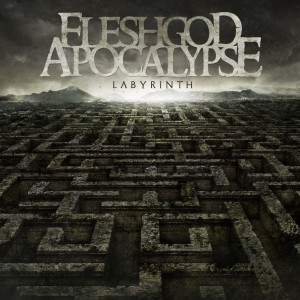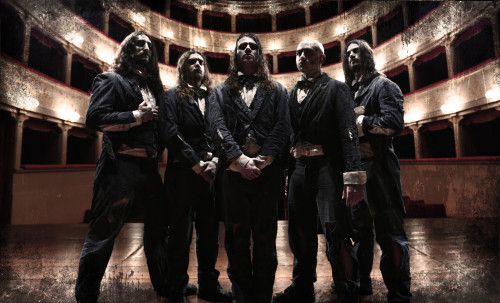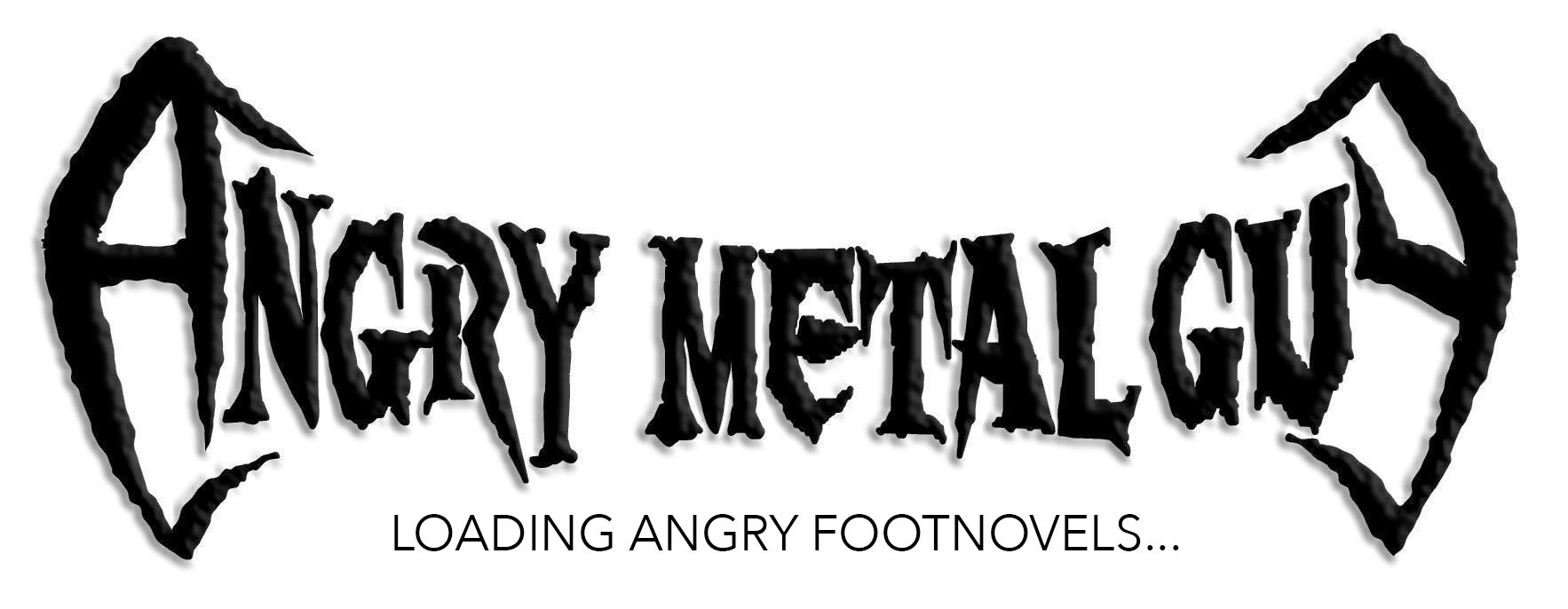Fleshgod Apocalypse // Labyrinth
Rating: 3.0/5.0 — Trapped in a Labyrinth of Production
Label: Nuclear Blast [ US | EU ]
Websites: fleshgodapocalypse.com | facebook.com/fleshgodapocalypse
Release Dates: EU: 2013.08.16 | UK: 2013.08.19 | US: 08.20.2013
 One of the mightiest debut records of all time belongs to Italy’s Fleshgod Apocalypse. Oracles, as the record was entitled, is quite possibly one of the most addictive, interesting, and—dare I say—fun death metal records I own. Made up of members of Hour of Penance and other smaller-time Italian acts1, Fleshgod’s take on technical death metal was fresh. Instead of drawing from the legacy of Death and American jazz-influenced technical death metal, Oracles was intricately written neo-baroque technical death metal. It drew on the Italian culture of orchestral music, but it did it all to heinously replaced (but well-played) drums. I hadn’t known it at the time, but this is what I always wanted from a technical death metal band and Oracles became one of my favorite records of 2009.
One of the mightiest debut records of all time belongs to Italy’s Fleshgod Apocalypse. Oracles, as the record was entitled, is quite possibly one of the most addictive, interesting, and—dare I say—fun death metal records I own. Made up of members of Hour of Penance and other smaller-time Italian acts1, Fleshgod’s take on technical death metal was fresh. Instead of drawing from the legacy of Death and American jazz-influenced technical death metal, Oracles was intricately written neo-baroque technical death metal. It drew on the Italian culture of orchestral music, but it did it all to heinously replaced (but well-played) drums. I hadn’t known it at the time, but this is what I always wanted from a technical death metal band and Oracles became one of my favorite records of 2009.
After a good follow-up EP entitled Mafia, which introduced clean vocals into the mix for the first time, the Fleshgod struck back with 2011’s Agony, a record I enjoyed at the time, but have mixed feelings about. While the rest of the press in the world seemed to be doing cartwheels because Fleshgod had hopped the orchestral death metal bandwagon, overlooked was that the guitars had taken a backseat to the over-the-top orchestrations. The novelty of the writing had lost its subtlety. What made Oracles brilliant, was missing. Still, musically the vision of the band was very appealing. And it was tough for me to dislike Agony despite the movement away from what I appreciated about the band’s earliest material. I probably gave the record a higher rating than it deserved—as I have seldom returned to it since it was released—but its vision was clear and successfully executed, with sharp songs and a well-differentiated division of labor between the guitars and the orchestra.
Labyrinth is 2013’s incarnation of Fleshgod’s neo-classical death metal. Once again, Labyrinth is not a clone of the band’s previous work, but instead it seems to be Fleshgod’s attempt to reach a happy medium between Agony and Oracles, musically. This is accomplished by pushing much of the classical noodling—the thing that got them called ‘technical’ from the beginning, a thing they probably should not have been called on Agony—back to the guitars. This is obvious from the opening notes of “Elegy,” for example, where the orchestra carries the melody, but instead of chugging along as they did on Agony, the guitars pick up the harmonies and even carry the arpeggiation on guitar 1 and then guitar 2. The first 45 seconds of the immense “Warpledge,” also show the guitars retaking their position in the “technical” part of the tech death mantra that the band is frequently accused of. This welcome return to the riffing of Oracles definitely excites the senses, and gives the band back a bit of something that was missing—the intro to “The Fall of Asterion” exemplifies this perfectly, while “Under Black Sails” features some of the band’s most interesting guitar work to-date.

Unlike Oracles, however, Labyrinth is essentially an opera in scope. Building on the direction from Agony, Labyrinth feels like a concept record—none of the songs quite stand out exactly on their own. Instead, the flow of the music ends up outweighing the importance of individual tracks; this gives off a feeling that Labyrinth is possibly also fairly uniform in its writing, as well. Despite being such a vibrant and creative endeavor, things sound about as gray as the album cover looks at times. The one song that really stands out on its own is “Epilogue,” which slows it down and uses the female operatic vocals of Veronic Bordacchini to immense success. Here, the mid-paced feel is used to dramatic effect, before the album launches back into the final three songs—which maintain the ’90s-style brutality blast assault.
Labyrinth’s desire to balance the orchestra with the guitars (ostensibly the right decision, in my opinion)—and all of this at Nuclear Blast Approved™ levels of compression—is partially what makes the sound profile here feel monotonous. The music itself vibrates with interesting ideas and fascinating melodies. However, with the drums heavily replaced—a shotgun blast for every hit—and high in the mix, the amount of room that’s left for the orchestral arrangements and the suddenly-important-again guitars, doesn’t leave mixer/masterer Saul Morabito much room to work. This pushes everything into a single range, which makes what is ostensibly hugely dynamic and fascinating music sound flat and oddly lacking in intensity. I’ve listened to this record a dozen times, and I always come away finding bits and pieces that I really love, but feeling like the whole is somehow deficient. I can’t place this at anyone’s feet but Morabito’s. Listened to through good speakers, the nuances become more apparent—but so to does the overmastering and intense flatness of the sound, and worst-of-all: the peaking. Pianos cause things to peak. Guitars cause things to peak. And instead of being powerful, the explosion at the beginning of “Minotaur (The Wrath of Poseidon)” actually just causes everything to fuzz out—because it’s simply impossible to fit anything louder onto the track.
Labyrinth is everything I should have wanted, but it is trammelled by a vision that isn’t being handled properly in the studio. That said, it has continued to grow on me (starting out at a solid 2.0/5.0 when I first heard it), but it has only been with deep, detailed listens that appreciate precisely the changes that have occurred and how the music is written that I have been able to appreciate the album for what it is. The vocal performances are all excellent. The musical performances are superb; drop the orchestras a bit back or the guitars a bit back, and everything sounds great. The songwriting is intense, and in the band’s obviously very capable hands, Labyrinth has all the makings of an excellent record—the back half is especially well-written. It’s a shame that I’ve had to work so hard to figure that all out…

















